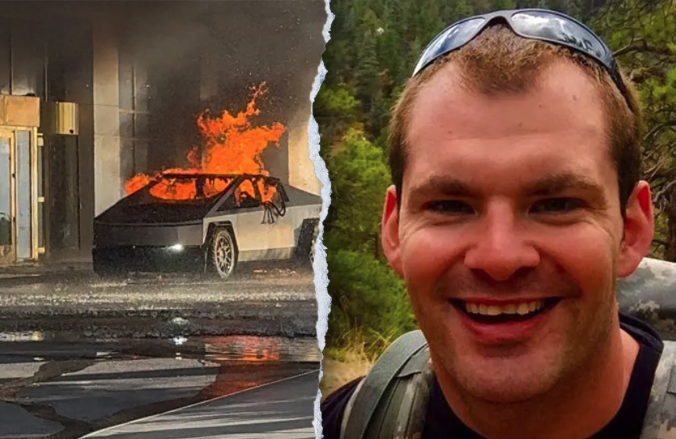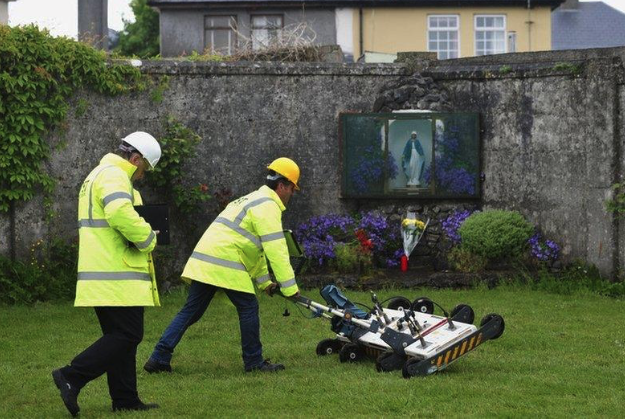The soldier behind the explosion involving a Tesla Cybertruck outside Trump International Hotel in Las Vegas on January 1 has been identified as Matthew Livelsberger, a 37-year-old active-duty member of the Army Special Operations community. Toxicology reports released this month confirm that Livelsberger was under the influence of alcohol and THC—the psychoactive component of marijuana—at the time of the incident.
Livelsberger died from a self-inflicted gunshot wound to the head, according to the Clark County coroner’s office, which ruled his death a suicide back in May. The newly released toxicology findings were obtained by 8 News Now Investigators and add further context to the unusual and tragic series of events. The report also detected the presence of benzene in his stomach fluid. Officials noted that the benzene likely resulted from exposure during the explosion itself, as the chemical is commonly found in substances like gasoline and paint remover.
Matthew Livelsberger died from a single gunshot wound to his head, documents said, with the coroner’s office ruling his death a suicide in May. Toxicology results showed alcohol and THC, the psychoactive ingredient in marijuana, in his blood. https://t.co/cbgyfrGqsg https://t.co/lTbZz1wHtW
— David Charns (@davidcharns) June 17, 2025
Livelsberger was reportedly stationed in Germany prior to his return to the United States in December. He arrived home in Colorado on December 21, 2024, and had plans to resume his post in early January. According to investigative documents, he had intended to meet with a Navy SEAL to purchase drones, but those plans were canceled following a dispute with his wife. Investigators say he left home on December 29, following the argument, and sent his wife an email with a message that included a goodbye and a mention of their daughter, suggesting he did not plan to return.
On the morning of January 1, surveillance footage captured the rented Tesla Cybertruck in Las Vegas around 7:30 a.m. The vehicle was seen entering and then leaving the Trump International Hotel valet area, before making a loop along the Las Vegas Strip. It briefly stopped in a commercial parking lot before returning to the hotel at approximately 8:40 a.m., moments before the explosion occurred.
The blast was traced back to fireworks and other explosive materials that Livelsberger had ignited from within the vehicle. Authorities later confirmed that no one else was injured in the explosion. As part of their investigation, Las Vegas Metro Police and the FBI reviewed a number of writings and letters recovered from Livelsberger.
They described the materials as containing a mix of personal and political grievances. Some messages included strong political statements, urging people to “wake up” to what he referred to as weak leadership and encouraging support for former President Donald Trump and Tesla CEO Elon Musk.
Despite these statements, officials with the FBI have not identified a specific motive behind the attack or why the Trump hotel was chosen. Similarly, there is no confirmed reason for why a Tesla Cybertruck—rented for the incident—was used in the event. Investigators emphasized that Livelsberger’s writings were wide-ranging and did not provide a clear or cohesive motive.
Military records show that Livelsberger served in multiple combat zones, including five deployments to Afghanistan and another to the country of Georgia in 2021. Medical records also show that he had been diagnosed with post-traumatic stress disorder and was prescribed fluoxetine, commonly known as Prozac, an antidepressant often used to treat mood and anxiety disorders.
As the investigation remains closed, questions persist about Livelsberger’s mental health, access to explosives, and the broader implications for military service members dealing with the effects of combat trauma. For now, officials continue to piece together the final days of a decorated soldier whose final act shocked a city and left many seeking answers.




